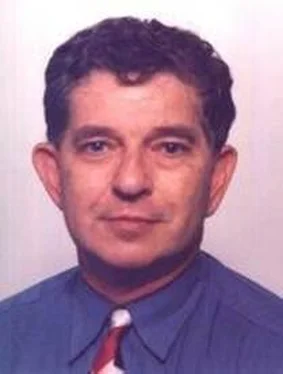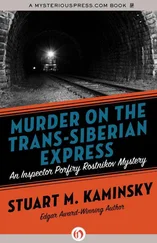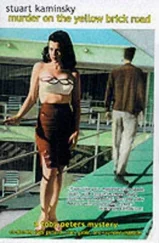“Scott’s friend’s a warm-hearted liberal from an Upper East Side family, so he goes and buys this guy a shit second-hand typewriter and some paper. Month and a half later, the guy shows up with four sheets, typed. No, no I’m not joking. Month and a half later, only four sheets. So Scott’s buddy reads ’em-What? I don’t know why he brought them in to him. Anyway, so Scott’s buddy reads them and they’re absolute crap, right? Some science fiction shit about a world taken over by machines or something. We’re talking the first Terminator. So he sends the guy on his way and doesn’t think twice about it. One week later, the guy shows up and hands him a sheaf, a fucking sheaf of paper. I don’t know, like sixty, seventy pages. Scott’s friend reads them, goes nuts and calls Scott and Scott drives down-I know, I know. In his cherry-red Z3 to a fuckin’ soup kitchen.”
Adam broke off laughing. “He’s dedicated, Scott. Phi Beta Kappa from Yale, when it’s all said and done he drives down to that soup kitchen if he thinks it’ll yield.
“So Scott gets them, these, however many pages, and they’re gold. No, not gold. Platinum. They’re fucking platinum. Best thing he’s ever read, and keep in mind he’s our novel guy. So I tell him to run it through the loop. All tolled, five reads, all give him four stars on style and writing. Wanted to wait for the big men to make the call on story, just because it is Vietnam. So it’s up to you and me.
“Of course I’m waiting. Don’t worry, no one else even knows where to find this guy. He’s completely ours-he couldn’t find his way to an editor if we left him in the lobby of S &S. We’re waiting until we get the second half. It’s a short novel, only gonna be about two hundred pages, all said and done. We’ll wait on him, then we’ll talk. We’ll talk.”
Adam Diamond hung up the phone. It left his ear for the first time since 8:30 that morning, and it was well after 2:00. His lunch meetings often slid late, but this was late even for him, and he could feel his stomach complaining about last night’s Scotch and this morning’s caffeine.
He leaned over and hit the red button. Fourth one in from the left. “Get Cathy on the line, let her know it’s still Baldoria, but it’s gonna have to be three, not two thirty. You can reach her in the car if she’s already left.”
Adam Diamond was remarkably good-looking for a forty-five-year-old man. His dark brown hair lacked even a hint of gray-“distinguished my ass, I want be dead and gone before they call me distinguished”-and it fell in short wavy ringlets over his smooth forehead. He had a cruel face, but it was a learned cruelty. The anger did not flower naturally from beneath the skin, but sat across it, etched in the wrinkles he did not have.
He switched the jade balls from hand to hand, turning his left hand over on top of the right as if to clap. Adam Diamond rarely clapped, however, and when he did, it was to punctuate a command, not to display appreciation. “Clapping is for fools,” his father used to say. “Take what you can from a show and run.” His father was a famous agent, almost a living legend in New York, a city with a lot of names. Then he died, and was just a legend.
IT HURT, IThurt like excising a cancerous growth, but once he started, he was steeped in blood too far to return, and so he continued. He entered them all, entered the voices one by one, and felt their words as the breath in his throat. Janson Tanker felt as if there were steam running through his insides, but he still had several nights of burning to do before he was spent. He only hoped that the stack of paper, which was shrinking like water leaving a tub, would last until the words ran out.
He had written them, written them one and all-his fallen comrades whom he loved and hated as he did his own flesh. He supposed he was trying to exorcise them or purify them, not that there was much of a difference anymore. He had reassembled them, brought them back from their homes in Heads Creek, Louisiana, and Culver, Texas, from Little Rock, Arkansas, and Detroit, Michigan. Using no discretion (for the war had not either), he plucked them from their homes like babes from a tit and sent them all back to the jungle.
Yet the scariest part was pulling the nails from the coffins and prying open the lids. Was watching the skeletons grow flesh and rise. And Janson resurrected them so precisely, adding even the optimistic shine of their smiles, only to kill them again. And he wished he had only to kill them with bullets.
He went to bed when he faded from his chair to the bare mattress. He wasn’t really sure when that was, just as he wasn’t really sure when his crying crossed from waking to sleeping hours. But somehow he always fell asleep because he always awoke with his mouth shut and his body screaming under the whirring paddles of the fan. The sweat was awful, so awful he didn’t even bother to try to clean his pillow in the little sink anymore because he knew it would be doused again the next night or the next sleep, whichever came first.
Sleep evaded and stalked him. It would slip away, fleeing through a tangled jungle path at night and drawing him inexorably along with it, through a waking hell. And then, just when he got his feet under him and adjusted to the rhythm of his footsteps, it would turn and pounce.
He had come to fear the typewriter. The 1951 Smith Corona typewriter on the stack of crates. He would stare at it, sometimes for hours, with hints of sleep glazing his eyes. Even when he turned away, he always knew it remained, always knew where it was. But after they routed Mai Teng, he knew it wasn’t the typewriter, that he would finish even if he had to write the rest on the walls in his own blood. He wondered what Barry’s friend would think of the skewed type on the sheets that he passed along.
He had a meeting in the morning, somewhere across the city, and his check had run out so he didn’t have money for a bus. He’d have to leave at 10:30 to make sure he got there by noon. He didn’t know what exactly it meant, but Barry said he had a friend who might give him money for his story, and he needed money right now more than almost anything. Barry said he’d pay for lunch if it was a lunch meeting, and Janson would have walked an hour and a half across town just for a decent meal.
He had written up to the very end. He didn’t know how many more pages, but he could feel the door closing. He didn’t think about it consciously, but he knew somewhere inside that he’d have to get through Henry Wilder to put it down, to put it all down. But for now, he couldn’t face the typewriter, so he concentrated on washing his pants and shirt in the sink so he wouldn’t smell at the meeting. He would try to tape the hole in the knee from the inside so it wouldn’t hang open.
He had given Barry the latest segments-the total was now one hundred seventeen pages and two paragraphs on the one hundred eighteenth. The pages were not numbered and he did not consciously count them, but each fresh sheet tolled, somehow, inside his head. Although he turned over the new pages the day before yesterday, he remembered just how he had written the storm, and could still feel it rattling inside him.
The thunder was still there, and it was all light that didn’t fade and shrapnel still in flight. I waited for the trees to stop shaking-what world what ungodly world where even the trees shake and the soil flies at you and folds under you-and for the rain to stop whipping my cheeks, but I had waited days or months already to no avail. When the ground eats its own progeny, then we’ve all come to judgment day, but I’d seen it all, seen the very ground spread its jaws and pull my struggling comrades down into tunnels and unimaginable torments, seen bodies waist deep in soil jerking with the movement of hands gripping them beneath the ground. And yanked down in a flash of foreign tongue moving vertically even in sound and then a scurrying of footsteps beneath. Always beneath and below. Footsteps in the cellar of my mind, even then in the rain with the shock of the blast still settling over and throughout me.
Читать дальше












